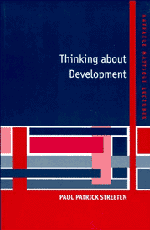SECOND LECTURE
Global Institutions for an Interdependent World
Published online by Cambridge University Press: 05 February 2015
Summary
Dominance: The Condition for an International Order?
In this lecture I shall talk briefly about the past, then survey the present and finally glimpse into the future.
What functions do we expect to be characteristic of a working international order that is concerned with developing underdeveloped regions, in the context of a growing world economy, and with an equitable distribution of the gains from growth? I think we can name at least three or four.
First, it is helpful, if not essential, that there should be a centre that generates balance of payments surpluses, an excess of exports over imports, for the benefit of the developing regions.
Second, there should be financial institutions that convert these surpluses into long-term loans or equity investments on acceptable terms. This requires banks, corporations and aid agencies. In addition to the need to convert an excess of exports over imports into long-term financial instruments, certain additional financial functions are useful to support these loans and investments. For example, the foreign lending should be counter-cyclical, so that when the centre contracts the periphery can expand and contribute to the stabilization of the system. It is also helpful if the centre acts as lender of last resort and as the provider of the means of payment for international transactions.
- Type
- Chapter
- Information
- Thinking about Development , pp. 85 - 144Publisher: Cambridge University PressPrint publication year: 1995



